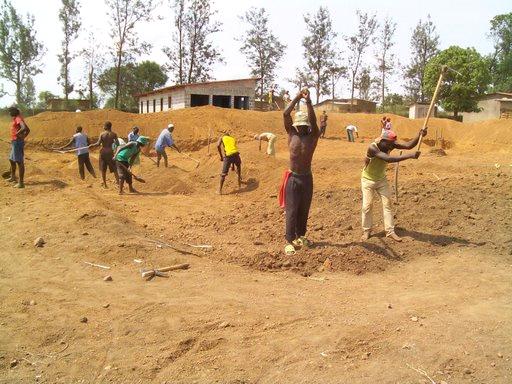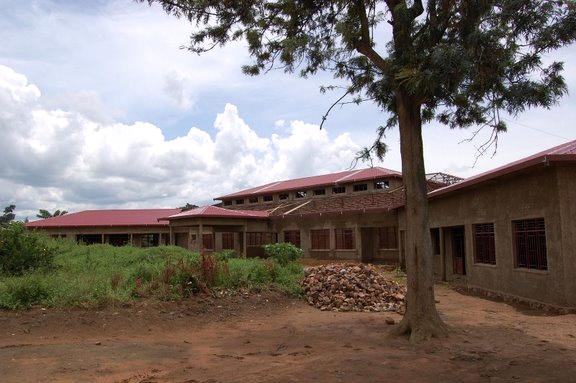
It's graduation time, and young people everywhere are donning caps and gowns and eager expressions. In a small village in rural Rwanda, Claudine Mukangoga just fulfilled her lifelong dream: she became a nurse. Claudine's graduation celebrations were bittersweet, though, as just a month ago, Claudine's mother -- her greatest supporter and the reason she wanted to become a nurse in the first place -- died of AIDS.
Three years ago, Mama Claudine found out she was HIV positive at the health center in Gashora. Because Gashora's health center did not have the space or other resources to provide potentially lifesaving antiretroviral treatment, the nurse advised Mama Claudine to go to Rilima health center, about 20 kilometers away. Too weak to embark on the six hour walk and too poor to afford a motorcycle ride -- not an uncommon dilemma for the locals of Gashora -- Mama Claudine went home with just the hope that her condition would improve with time and prayer. Indeed, after a few days of bed rest, she felt better, but over the following months and years, without antiretroviral treatment to strengthen her immune system, she frequently fell sick, lost a significant amount of weight, and developed several opportunistic infections. She nursed her ills with local herbs and rest, which she preferred instead of visiting the Gashora health center with its crumbling walls, long wait times, and lack of clean water and electricity. Serving a population of over 20,000 and originally built in 1987 to serve as a dispensary rather than a health center, the Gashora facility simply can't provide good care. Patients often wait up to six hours before being seen -- there are too few nurses and too few consultation rooms. The equipment is old and inadequate to the task. Those who are able prefer to walk six hours to Rilima to access more modern facilities for consultations, lab tests and other services. However, the larger majority, unable to give up precious time tending to crops or fishing -- the main subsistence activities in the area -- don't visit a health center at all, allowing illnesses to progress and contagions to spread as in the case of Mama Claudine.
Three months ago, Mama Claudine began spending all her days in bed. One month ago, her neighbors insisted that she go back to the health center, and carried her the entire five kilometers. Shortly after she arrived, Mama Claudine died -- orphaning her three children, who had lost their father in the 1994 genocide. This, too, is unfortunately not uncommon for many in Gashora.
Would Mama Claudine have been able to attend the graduation ceremony had the health center in Gashora been able to provide treatment to stop her infection from progressing? In all likelihood, yes. Antiretroviral drugs have been proven to extend life substantially. If the health care she required had been available when she initially discovered her HIV status or when she returned to the health center, very ill, this virus that has already taken millions of lives in sub-Saharan Africa would not have killed her.
The silver lining in this very dark cloud is that the people of Gashora will have a new health center by the end of June this year, and it will be able to provide antiretrovirals in addition to the basic day-to-day care desperately needed by all members of the community: vaccinations, antenatal and postpartum care and minor surgical interventions. A donor has provided the funding for construction; government is providing the systems and labor to maintain the health center in perpetuity.

Surprisingly, it doesn't require all that much in the way of money. For less than half a million dollars, some sweat from the local population, and strong managerial oversight, a new health center can be up and running in rural Rwanda within six months of breaking ground. I've seen it. It's not easy, but it's possible and critically important.
The billions of dollars being spent on procuring antiretrovirals for Africa will be wasted if the infrastructure required to distribute those drugs continues to crumble. Young people like Claudine, devoted to serving their community through providing good health care, need four walls, a roof, clean water and electricity to be able to do that effectively. It doesn't seem like too much to ask, does it?
